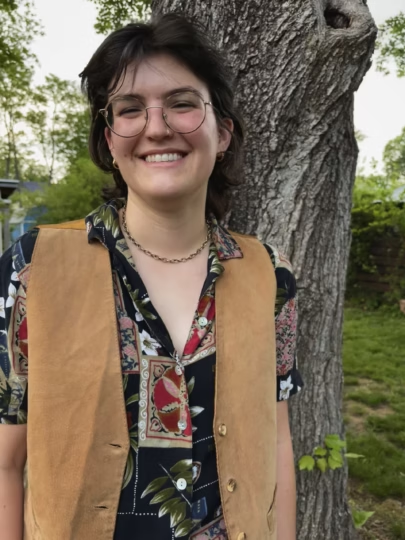What’s your name?
Irène Mathieu
What’s your department?
Associate Professor, Department of Pediatrics
What’s your hometown?
Charlottesville, Virginia
How are you connected to TYDE?
I am an affiliate faculty member.
What is your research about? What parts of it are the most exciting to you?
My research examines disparities in youth mental health and attempts to find youth-driven, community-centered, creative solutions to the mental health crisis. I’m also interested in learning more about how youth participatory action research (YPAR) impacts both young people and adults, and how we can utilize it more in pediatric research.
In your opinion, what are the main challenges that young people face navigating the world of digital technology and/or social media?
One of the biggest challenges is mis-/disinformation that’s pervasive online. It can be incredibly difficult for people of all ages to discern what is true and false online. Furthermore, increasingly AI is delivering information to users who may or may not have the digital literacy to fact-check or tease apart relevant nuances. I think there’s so much potential for building youth’s digital literacy starting in early childhood. For example, just the other day my four-year-old suggested we “ask the Internet” about something. My partner and I took that opportunity to discuss with her what it means to “ask the Internet” and how it’s important to distinguish between an answer delivered by a machine on the Internet (AI) versus a person, and that what machines and people alike write online may not always be true.
What do you wish people knew about youth mental health and digital technology?
I wish people knew that there is still so much we don’t understand about the relationships between youth mental health and digital technology. It’s tempting to condemn all digital technology as unequivocally bad, but the data simply don’t support such a simplistic explanation for the decline in youth mental health. Furthermore, there are digital tools that can be really beneficial for youth mental health – for instance, some mental health apps can provide helpful adjunctive support to struggling youth. Technology makes for an easy scapegoat AND an easy panacea for the youth mental health crisis, but the reality is that it’s neither. However, setting boundaries early and often with young people around technology, creating space for open conversations in families about technology and media use, and helping young people develop self-awareness about how their technology and social media use is impacting them can be really helpful tools to maximize its positive impact and minimize harm. That being said, evidence for some rules-of-thumb is emerging – for example, the benefits of delaying social media use until after puberty. Digital technology is just the latest in a long line of tools humans have been creating since prehistoric times. Just like every other tool we’ve made, its usefulness is dependent upon the skills of the people using it.









